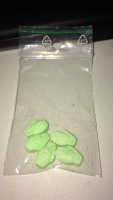buy psychedelic drugs online
Purchase MDMA (Ecstasy) Tablets to Treat PTSD
Purchase MDMA (Ecstasy) Tablets to Treat PTSD|Best Place To Buy MDMA (Ecstasy) Online Without Prescription
Purchase MDMA (Ecstasy) Tablets to Treat PTSD
What is MDMA?
MDMA (3,4-methylenedioxymethamphetamine) is a psychoactive drug known for its empathogenic effects, promoting feelings of empathy, emotional closeness, and euphoria. Originally used recreationally, MDMA is now being studied for its potential therapeutic benefits, particularly in treating PTSD. Buy Ecstasy Online
The Rise of MDMA in Therapy
In recent years, MDMA has been at the forefront of psychedelic-assisted therapy. Researchers and clinicians have identified its potential to help patients process traumatic memories without the overwhelming fear and anxiety typically associated with PTSD.
Understanding PTSD
Post-Traumatic Stress Disorder (PTSD) is a mental health condition triggered by experiencing or witnessing a traumatic event. Symptoms include flashbacks, severe anxiety, and uncontrollable thoughts about the event. Traditional treatments include psychotherapy and medications, but these methods are not always effective for all patients.
Limitations of Traditional Treatments
- Medication: Antidepressants and anti-anxiety drugs can help manage symptoms but often come with side effects and do not address the root cause of PTSD.
- Therapy: While effective, psychotherapy can be a long and challenging process, and some patients do not respond well to traditional methods.
How MDMA Works in Treating PTSD
MDMA-assisted therapy combines psychotherapy with controlled doses of MDMA. The drug’s effects help patients revisit traumatic memories with reduced fear, allowing for more effective processing and integration of these experiences.
Mechanism of Action
MDMA increases the release of neurotransmitters like serotonin, dopamine, and norepinephrine, enhancing mood and emotional resilience. It also promotes the release of oxytocin, which fosters trust and emotional bonding, creating a safe therapeutic environment. Buy Ecstasy Pills Online
Therapeutic Benefits
- Reduced Fear Response: MDMA helps patients face traumatic memories without the associated fear and anxiety.
- Emotional Healing: The empathogenic effects facilitate emotional openness and healing.
- Enhanced Therapeutic Alliance: The drug fosters a stronger connection between the therapist and patient, improving the overall therapeutic experience.
Research and Clinical Trials
Key Studies and Findings
Several clinical trials have demonstrated the efficacy of MDMA-assisted therapy for PTSD:
- MAPS Study: The Multidisciplinary Association for Psychedelic Studies (MAPS) has conducted multiple Phase 2 and Phase 3 trials showing significant improvement in PTSD symptoms for patients treated with MDMA-assisted therapy.
- FDA Breakthrough Therapy Designation: In 2017, the U.S. Food and Drug Administration (FDA) granted MDMA-assisted therapy Breakthrough Therapy Designation, expediting the research process due to its potential for significant improvement over existing treatments.
Results and Outcomes
- Symptom Reduction: Studies have shown a substantial reduction in PTSD symptoms, with many patients no longer meeting the criteria for PTSD after treatment.
- Long-Term Benefits: Follow-up studies indicate that the benefits of MDMA-assisted therapy are sustained over time, providing lasting relief from PTSD symptoms.
Treatment Protocol
Preparation
- Screening: Patients are carefully screened to ensure they are suitable candidates for MDMA-assisted therapy.
- Preparation Sessions: Prior to the MDMA sessions, patients undergo several preparation sessions with their therapist to build trust and set therapeutic goals.
MDMA Sessions
- Controlled Environment: MDMA sessions are conducted in a safe, controlled environment with a trained therapist present.
- Dosage: Patients receive a controlled dose of MDMA, with the option for a supplemental dose during the session.
- Therapeutic Support: Therapists provide support and guidance throughout the session, helping patients navigate their experiences.
Integration
- Post-Session Integration: Following the MDMA sessions, patients participate in integration sessions to process and make sense of their experiences.
- Ongoing Therapy: Continued therapy helps solidify the benefits and integrate the insights gained during MDMA-assisted sessions.
Safety and Side Effects
Safety Considerations
MDMA is generally well-tolerated in a therapeutic setting, but there are important safety considerations:
- Medical Screening: Thorough screening for contraindications such as cardiovascular issues or a history of psychosis.
- Controlled Doses: Administering controlled doses to minimize the risk of adverse effects.
Potential Side Effects
- Acute Side Effects: Temporary side effects may include increased heart rate, dry mouth, and mild anxiety.
- Long-Term Effects: Research indicates no significant long-term neurocognitive effects when used in a controlled, therapeutic context.
Legal and Regulatory Status
Current Legal Status
As of now, MDMA is classified as a Schedule I controlled substance in many countries, including the United States, meaning it is illegal for general use. However, exceptions are made for clinical research.
Path to Legalization
- Ongoing Research: Continued research and successful clinical trials are paving the way for potential approval of MDMA-assisted therapy for PTSD.
- Advocacy and Education: Organizations like MAPS are working to educate the public and policymakers about the benefits of MDMA therapy.
Public Perception and Stigma
Changing Attitudes
Public perception of MDMA is gradually shifting from seeing it solely as a recreational drug to recognizing its therapeutic potential. Media coverage of research findings and personal testimonials from patients have played a significant role in changing attitudes.
Addressing Stigma
- Education: Increasing awareness about the science and benefits of MDMA-assisted therapy.
- Patient Stories: Sharing success stories of individuals who have benefited from MDMA therapy can help reduce stigma.
Future Directions
Expanding Research
- Broader Applications: Exploring the use of MDMA for other mental health conditions such as depression and anxiety.
- Global Studies: Conducting international research to understand the effects of MDMA across different populations.
Potential Approval
If ongoing trials continue to show positive results, MDMA-assisted therapy could receive FDA approval in the near future, revolutionizing the treatment of PTSD and potentially other mental health conditions.
Conclusion
MDMA (Ecstasy) tablets usa are showing great promise in the treatment of PTSD, offering hope to those who have not responded to traditional therapies. Through controlled clinical trials and research, MDMA-assisted therapy has demonstrated significant benefits in reducing PTSD symptoms and improving overall mental health. As research progresses and public perception shifts, MDMA could become a groundbreaking tool in the fight against PTSD.


